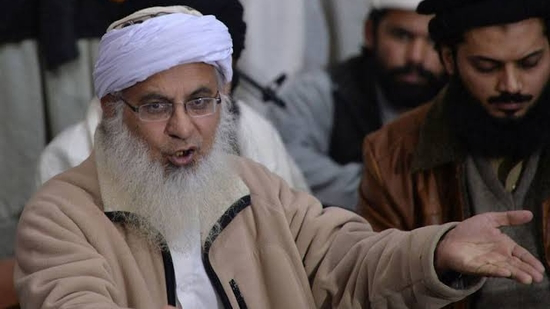In a fiery sermon delivered at Islamabad’s Lal Masjid, controversial cleric Abdul Aziz Ghazi launched a stinging attack on the Pakistani state and questioned the religious legitimacy of a war with India. His remarks, captured in a video now widely circulated on social media, have ignited fresh debate over civil-military tensions and the politicisation of religion in Pakistan.
Addressing a large congregation during Friday prayers, Ghazi posed a provocative question: “If a war breaks out between Pakistan and India, how many of you will support Pakistan? Raise your hands.” The response from the crowd was telling—there was an eerie silence, with barely any hands raised.
Interpreting the lack of enthusiasm as a sign of public awareness, Ghazi declared, “Very few hands are visible. That means a good level of awareness has developed. The issue is that the war between Pakistan and India is not an Islamic war.”
The cleric did not hold back in his criticism of the Pakistani state, accusing it of oppressing its own citizens and perpetuating systemic injustice. “The government is not just corrupt, it is violent against its people. This is not the kind of state that deserves blind support,” he said in his sermon, painting a bleak picture of Pakistan’s internal governance and crisis of legitimacy.
Abdul Aziz Ghazi, a prominent figure in Pakistan’s radical religious landscape, has long been a polarising presence. His association with Lal Masjid, the site of a deadly 2007 standoff between Islamist militants and the Pakistani military, has kept him in the public eye and on the radar of intelligence agencies.
The timing of his remarks is significant, coming amid renewed tensions between India and Pakistan following a terror attack in Jammu and Kashmir’s Pahalgam, which killed 26 people. India has accused Pakistani-backed groups of orchestrating the strike, prompting diplomatic heat between the two nuclear-armed neighbours.
Ghazi’s comments add another layer of complexity to the narrative, where state-backed religiosity is being questioned by voices within its own fold. By openly rejecting the idea of a religious war with India, he challenges decades of state propaganda and the strategic use of religious sentiment to mobilise public support for military actions.
His statement also hints at a deeper disillusionment within sections of Pakistani society, especially in the wake of economic instability, political chaos, and perceived military overreach. Critics of the state argue that invoking religious unity during wartime is a tactic to distract from domestic failures.
As the video continues to trend across platforms, political observers are debating its potential repercussions. Will such dissent from a hardline religious figure embolden more voices to question the state’s narrative? Or will it provoke a backlash from the military establishment known for clamping down on clerics who go off-script?
While authorities have yet to respond officially to Ghazi’s remarks, his sermon reflects growing discomfort within Pakistan about the exploitation of religious sentiment for political or military agendas.








 India
India












